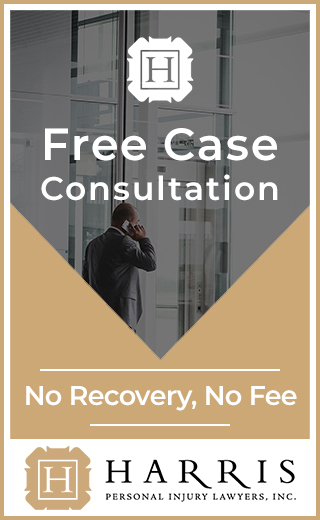Dana Point Train Accident Attorneys
Dana Point Train Accident Attorneys
Whether it’s the daily commute to work, a trip into town to meet with friends, or just a break from California’s gridlocked highways, taking the train is a simple way to get around. However, like any other form of transport, there’s always the risk of an accident. If you were hurt while using public transport, turn to our Dana Point train accident attorneys for legal advice, guidance, and representation. We can help you seek damages from the at-fault parties by thoroughly investigating the accident, gathering evidence, preparing your claim, and representing you during proceedings. To discuss your options, dial 1-800-GO-HARRIS or send us as message HERE.
Can I Use Social Media While My Claim Is Pending?
If you’re active on social media, you’re probably in the habit of turning to your online circles for advice, encouragement, and support. After an accident, this digital space can feel like a sanctuary as your real-world problems start to stack up. However, before you publish a single post, you need to be aware of how your online activity could harm your claim. The insurance company may be scrutinizing every post, looking for any signs that you are exaggerating your injuries or downplaying your liability. A single throwaway comment could lead to delays, disputes, and reductions to your financial award. While it’s best to disable your online profiles until your case has concluded, you may not be ready to disconnect. Below are a few ways you can protect your claim next time you’re online:
- Never “Check In:” Sites such as Facebook have features to let you “check in” at certain locations. It’s an easy way to broadcast your activities and let your friends and family know what you’re up to. It’s also a shortcut to sinking your claim. Unfortunately, leaving your home for any reason outside of attending follow-ups and consultations can give the opposing party enough ammunition to challenge the severity of your injuries and the impact they’ve had on your quality of life. You should also ask those in your circles to avoid tagging you in their posts. If you want to connect with them during this challenging chapter of your life, it’s best to do so over the phone, in person, or via email.
- Do Not Discuss Your Claim Online: Before you post anything online, you should take a minute to scrutinize every sentence. Did you say anything about your injuries? Have you mentioned something that could be used by the insurance company to dispute the severity of your injuries? While it’s difficult to predict how an opposing party may choose to interpret what you post, you should avoid making comments about the accident, the case, your injuries, your recovery, the damages you’ve incurred, your social life and activities, and your accident-related expenses.
- Avoid Accepting Requests from Strangers: Like many Americans, you may be hard at work building an expansive professional network on social media. This online activity has probably put you in the habit of accepting new friend or follow requests without checking to see who is sending the invite. Ordinarily, doing so does not carry any real consequences outside of a few questionable messages in your inbox. However, while your claim is pending, you should not approve requests from people you don’t recognize. The invite may be from an opposing party or an individual employed by the insurance company. Once accepted, these cyber sleuths will have free rein to comb through your posts picking out any comments or pictures that could be used to challenge your claim.
How Can I Prove Liability in a Personal Injury Case?
Most personal injury claims are founded on negligence, which is a breach of the duty of care. To prove liability for your injuries, you will have to demonstrate how another party is responsible for causing the accident that resulted in your damages. You will also need to provide evidence of your losses. Evidence that may contribute to the strength of your personal injury case can include:
- Expert Witness Deposition: Whether you need to demonstrate lost income-earning capacity or counter disputes over liability, it may be necessary to hire a specialist to prove some of your damages. For instance, if the insurance company claims that you underwent unnecessary procedures, your attorney may consult with a medical expert to overcome such defenses. Alternatively, if opposing parties dispute causation in a truck accident claim, your lawyer may call on the services of an accident reconstruction expert to determine who is at fault.
- Surveillance Camera Footage of the Accident: If there were surveillance cameras in the vicinity of the accident scene, there’s a high likelihood that these devices captured footage before, during, or after the moment you were hurt. This video footage could help corroborate aspects of your case.
- The Official Incident Report: If police officers responded to the scene, they will typically compile an official report on the incident. This document will contain the findings of their investigation including information about the injuries sustained by the parties involved, the probable causes, property damage, and other information that could help prove liability, causation, and damages.
- Medical Records: When you visit the doctor, a diligent healthcare provider will almost always create medical records documenting the nature of your injuries, recommended procedures, limitations, prescription medication, and other details related to your treatment.
Schedule a Free Consultation with Our Dana Point Train Accident Attorneys
Train accidents can lead to catastrophic injuries and a lifetime of medical expenses. If you or someone you love was hurt on the rails, on the road, or on someone else’s property, turn to our legal team for advice. To schedule a free consultation, call 1-800-GO-HARRIS. We work on a contingency-fee basis, which means you don’t pay attorneys’ fees unless your claim is successful.

